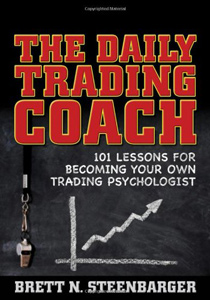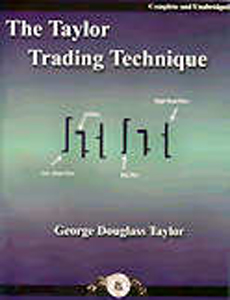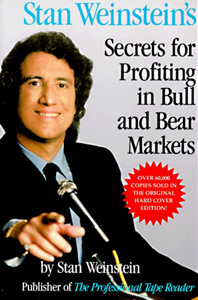Top 10 Dumbest Trading Mistakes

Further Reading
There are many fools trading in the worldwide markets. Trading stocks, forex or commodities anyone can make these dumb trading mistakes. But to be a highly successful trader you must admit to your mistakes and act to fix your previous follies.
Trade Without a Plan
Most retail traders make the mistake of trading the markets with no plan at all. We’re talking about a written plan here that is set in stone. A trading plan that will tell you when to enter a trade and when to exit the trade. It is as clear cut and simple as that. Having a system helps remove the emotional element which contributes to many trading mistakes.
Your trading plan is your strategy. You must know before you initiate the trade when you are going to get out, whether that exit price is a profit or a loss. By knowing your exit price you will determine your maximum risk and you can enact the age old adage: “Cut Your Losses Short and Let Your Profits Run”.
Your entry strategy should also be detailed by your trading plan. This will make your entries more predictable and consistent, which is better than the alternative of basing your trading decisions wholly on your gut feel and getting all excited about the trade.
Having a trading plan will also prevent you from falling in love with a stock or other financial equity and turning your trade into an “investment.” Other elements of your trading plan which you should plan for and backtest is whether it is a good strategy for you (your trading personality) to either average up or average down as well as considering advanced strategies to hedge your position.
Not Following Your Trading Plan
So you do have a trading plan! You've written down your trading rules, backtested them and the numbers added up. Now you aren’t following them?! If you aren’t following your plan, ask yourself why you aren’t doing so. What are you doing currently to determine your entries and exits? Are all your decisions based on gut feeling or have you enacted another untested trading plan which you still haven’t documented (and yet are changing the variables after every trade)? At one point in time you knew it was important to have a plan – now use it!
The Most Complicated Systems are The Best
Have you ever been to an electronics store with a salesperson who simply wouldn’t stop talking about the advanced (and complicated sounding) features of a gadget? In all the talk and hype you may have bought that piece of equipment and when you brought it home you found the features to be simply too complicated to use? Well that parallel works with complicated trading systems. The truth is, the big investing companies use complicate systems to trade, systems usually based on quantitative analysis (Heard of Quants?). These systems are often worth hundreds of thousands to millions of dollars, which have had thousands of hours of research put into these systems. Buying a system worth $5,000 or $15,000 from a seminar spruiker is not likely to match a similar level of research.
Remember to Keep It Simple, Stupid! (The KISS principle). Even the most simplest rule of buying (or selling) in the same direction the price of the security is going. So if the price is generally going up (i.e. the trend is up), BUY, if the trend is down, SELL. This is related to momentum theory where objects which are going in one direction have a tendency and more likely to continue in that direction. Again, assess your own situation and trading prowess before enacting such a rule.
Don’t Follow the Crowd
Following the crowd is key. The markets can be examined with crowd theory – that is after all one of the foundations of technical analysis. If you don’t follow the crowd, you simply set yourself up for failure. Of course, this principle doesn’t exactly mean to follow the market like sheep or follow a market tipping service. It means, you must follow the larger crowd: the market leaders which influence the markets (financial entities like banks and funds). They are the people who greatly influence and impact the market movements and you can follow them using sensible trend following technical analysis.
Blaming the Market
Blaming anyone (even if they are at fault) isn’t effective. Since the “market” isn’t a real entity, blaming “it” for any of your losses is simply unproductive. Blaming you advisers, or nameless insiders are also unproductive. But surprisingly, people still blame the markets for their losses. Remember, you are in control. You can control the level of risk you are prepared to put into the market.
Buying the Hype
Too many investors are still falling for hot tips and snake oil salesmen and their miracle "black box" trading systems. You should first decide if direct shares, rather than managed funds, are for them. If so, you need to know how shares fit into their financial plan. Once you make the decision to invest, ASIC recommends investors do their homework, buy shares in companies they understand, know how long they plan to hold the shares, learn the lessons of history, have realistic expectations of share market returns, understand the risk-return trade-off and your own tolerance for risk.
Chasing Yesterday’s Winners
Too many traders lose money because they are simply chasing yesterday’s winners. It is your job as a professional trader (yes, even if you are working from home) to be responsible in doing your homework in finding tomorrow’s star performer by doing your fundamental and technical analysis.
Diversifying too Much
As a trader, it’s probably not in your best interests to diversify. Why? Because you are sacrificing focus and spreading your capital widely could possibly lower your ROI per trade. This is personal preference and depending on your trading systems and style you may choose to diversify. Some successful trading strategies do diversify, but in a sense that the traders would trade groups of equities/securities/shares/stocks which have something in common, such as an industry, a commodity or index.
Don’t Keep up to Date
Keep up to date and keep informed when you are actively trading. You may be a chartist and a technical trader, but you must also keep abreast of fundamentals by keeping tabs on the news, especially those relating to the economy and the specific company stocks or currency or commodity. Make it a habit to keep up to date with the financial press. Or if you are a fundamental trader, keep up to date technically, by watching your charts.
Not Taking a Break
Finally, you must take a break. Taking a breather would definitely take you out of the intense concentration loop which you probably developed whilst you are trading. Actually, the perfect relaxer is having a sound trading plan which provides you with the confidence to take a break and not have sleepless nights wondering and wishing that the markets will turn in the next day’s trading.
- How to Trade Forex and Gold Options
- How to Trade the Gold Price and Profit!
- Forex Trading the EUR/USD Pair € EURO and $ US Dollar
- How to Trade Stock Market Indices S&P500
- How to Trade Crude Oil
- Forex Trading Psychology
- What Are Broker Recommendations?
- Free Tickets to Trading & Investing Seminar & Expo ($18) Brisbane 2013
- Stock Calc App
- All About Warrants
- Introduction to Exchange Traded Funds
- Introduction to Exchange Traded Funds: Features
- Introduction to Exchange Traded Funds: Domestic ETFs
- Introduction to Exchange Traded Funds: International ETFs
- Exchange Traded Commodities
- Australian Stock Scan
- Australian Online Share Trading
- List of Trading Books
- Interesting Thoughts about the Australian Dollar
- What's the Meaning of Hawkish?
- Do You Know How To Use the P/E Ratio
- Trading, Religion and Politics - Do They Have Anything in Common?
- Shares that are Volatile that Double and Half in the Short Term
- Telstra (TLS) T3
- Margin Call by E-mail
- The Cost of Holding a Position
- Lack of Disclosure: Compensation from ASX Listed Company
- Unrealistic Returns and Benchmarks
- CMC Markets Down
- Quality versus Quantity Forex Trading
- Woolworths 1H Sales $30.7bn up 3.2%
Date added 31-01-2013 - ASIC Fines CommBank's CommSec
Date added 25-09-2012 - Industry Super Network Calls to Ban High Frequency Trading (HFT)
Date added 22-09-2012 - NAB Launches Online Share Trading Platform
Date added 19-09-2012 - Reserve Bank of Australia Says 23 Countries Holding AUD
Date added 18-09-2012 - Australia Post Digital Mailbox
Date added 10-09-2012 - Winners and Losers of Trading for Week 2
Date added 16-01-2012 - 2012's First Week of the Best and Worst Traded Stocks
Date added 09-01-2012 - 2011's Last Best and Worst Traded Stocks
Date added 05-01-2012 - Best and Worst Pre-Christmas Traded Stocks
Date added 30-12-2011 - Trading Winners and Losers for Dec. 12-16
Date added 19-12-2011 - Best and Worst Traded Stocks for Dec. 5-9
Date added 13-12-2011 - Top 3 Best and Worst Traded Stocks
Date added 05-12-2011 - ASX Glitch Trading Halt
Date added 27-10-2011 - Worst Trade Stocks (and the Best)
Date added 06-08-2011
Top 150 Public Companies Listed on the Australian Stockmarket as at 29/05/2009
- BHP Billiton
- Westpac Banking Corporation (WBC)
- Commonwealth Bank of Australia (CBA)
- National Australia Bank (NAB)
- Telstra (TLS)
- ANZ
- News Corporation (NWS)
- Woolworths Limited(WOW)
- Woodside Petroleum Limited (WPL)
- Rio Tinto
- Westfield Group (WDC)
- Westfarmers Limited (WES)
- QBE Insurance
- CSL
- Newcrest Mining Limited (NCM)
- Origin Energy Limited (ORG)
- Santos Limited (STO)
- AMP Limited (AMP)
- Macquarie Group (MQG)
- Foster’s Group Limited (FGL)




